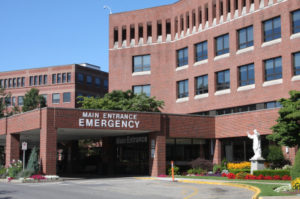MedPAC: Readmissions Penalties Unfairly Target Safety-Net Hospitals
Medicare penalties for hospital readmissions are inappropriately hurting hospitals that serve especially large numbers of low-income patients.
That was the message MedPAC conveyed to Congress last week.
The agency, which advises Congress on Medicare reimbursement matters, expressed concern earlier this year about the effect of Medicare’s hospital readmissions reduction program on safety-net hospitals, and it articulated that concern more formally in its June report to Congress.
As reported by Kaiser Health News,
MedPAC found that hospitals where fewer than 3 percent of Medicare patients were low income received an average penalty of 0.21 percent. Hospitals where more than 18 percent of Medicare patients were low income had an average penalty more than twice that, 0.45 percent.
As an alternative to the current approach, MedPAC has proposed setting readmission rate targets for hospitals and then exempting from penalties hospitals that meet their targets.
Read more about MedPAC’s report to Congress in this Kaiser Health News article or read the entire MedPAC report, Report to the Congress: Medicare and the Health Care Delivery System, which can be found here, on MedPAC’s web site.![]()






